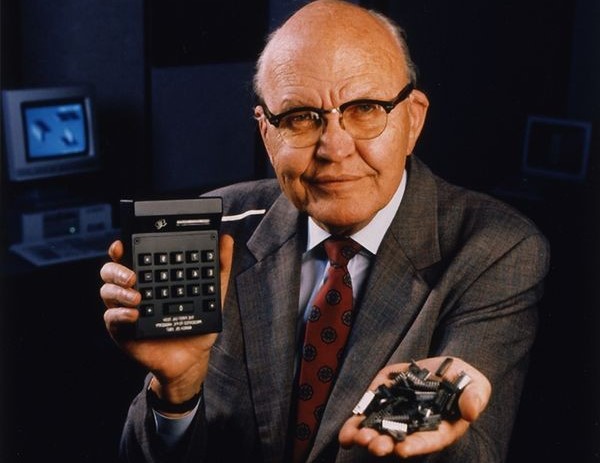He worked on the problem of minimizing electronic circuits: Who is Jack Kilby?
He and his team developed the first pocket calculator in the late 1960s and early 1970s. In the years that followed, Kilby devoted himself to semiconductor research, eventually obtaining more than 60 patents.

Jack Kilby was born on November 8, 1923, in Jefferson City, Kansas. Weather conditions, especially the severe snowstorms of 1938, shaped the future and education of this Nobel Prize-winning inventor. Hubert Kilby, the father of the famous inventor, who worked as a worker in a public institution, came up with the idea to seek help from amateur radio operators to overcome communication problems caused by his type. This idea sparked young Jack's interest in "amateur radio" and electrical engineering. After a while, he bought a license and made his own receiver. Just like his parents, he was educated at the University of Illinois. He then completed his master's degree in Electrical Engineering at the University of Wisconsin in Milwaukee in 1950.
HOLIDAY AT THE OFFICE – JACK KILBY AND THE FIRST INTEGRATED CIRCUIT
In 1958, Jack Kilby was hired by Texas Instruments. As a young and inexperienced employee, he could not take any leave and therefore had to be alone in the office. He worked on the problem of minimizing electronic circuits, as their continued growth became an increasingly problematic issue for designers. The 1958 summer vacation marked a breakthrough in electronics history when Kilby presented his first integrated circuit to the company's executives in September. Its executives were quick to realize the potential of this invention and patented it in February of next year. Interestingly, a similar chip was developed a few months later by another American scientist, Robert Noyce.
A CHIP, A CALCULATOR, AND A THERMAL PRINTER
This discovery opened up a range of opportunities and possibilities for Kilby and led to other inventions. The scientist built the first computer based on integrated circuit technology and also developed and patented a thermal printer. It's devices like this that print thousands of chips every day in stores and grocery stores. He and his team developed the first pocket calculator in the late 1960s and early 1970s. In the years that followed, Kilby devoted himself to semiconductor research, eventually obtaining more than 60 patents. His achievements have not only been recognized by the Nobel Prize committee, as we have already mentioned, but he has also received numerous other awards such as the National Medal of Science and the National Medal of Technology. The Texas Instruments research lab is named after Kilby, and there is a statue of the inventor at the University of Texas at Dallas.
A NEAR-FINISHED INVENTION
Integrated circuits enabled the massive miniaturization of digital circuits. They are therefore predominantly known as modules found on computer or smartphone motherboards: memories, microcontrollers, drivers, etc. They also made possible the development of precision analog-to-digital and digital-to-analog converters; Thanks to these, we can listen to music clearly and watch high-quality images on the television screen. Almost every type of circuit can be found integrated today: from logic gates to voltage regulators to countless peripheral circuits.
As recently as thirty years ago, Stanisław Lem, a Polish futurologist, described a computer equipped with a Last-Generation processor in his novel “Fiasco”; this computer could no longer be developed as the speed of light became an obstacle to its clock speed and size. Meanwhile, in the real world and in the world we live in, it turns out that quantum physics plays a different game for us. More and more people are convinced that Jack Kilby's invention will soon be hit by another hurdle - the tunneling effect inherent in electrons. In other words, the possibility of further miniaturization of integrated circuits will soon disappear, as transistors on the sub-1 nm scale do not work correctly.
All indications are that the microprocessor is the first invention, the limits of which will already be known before the end of your life.
